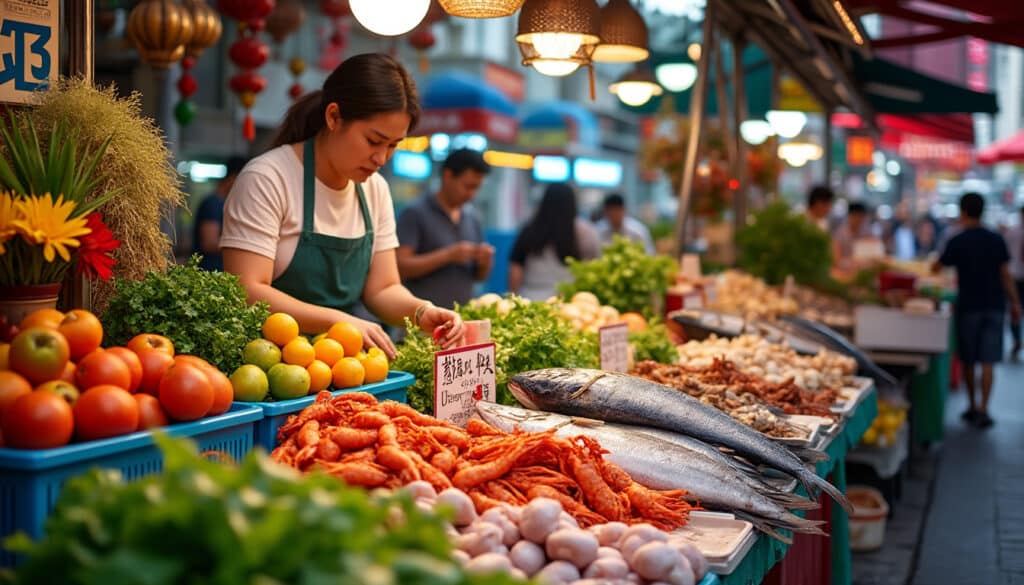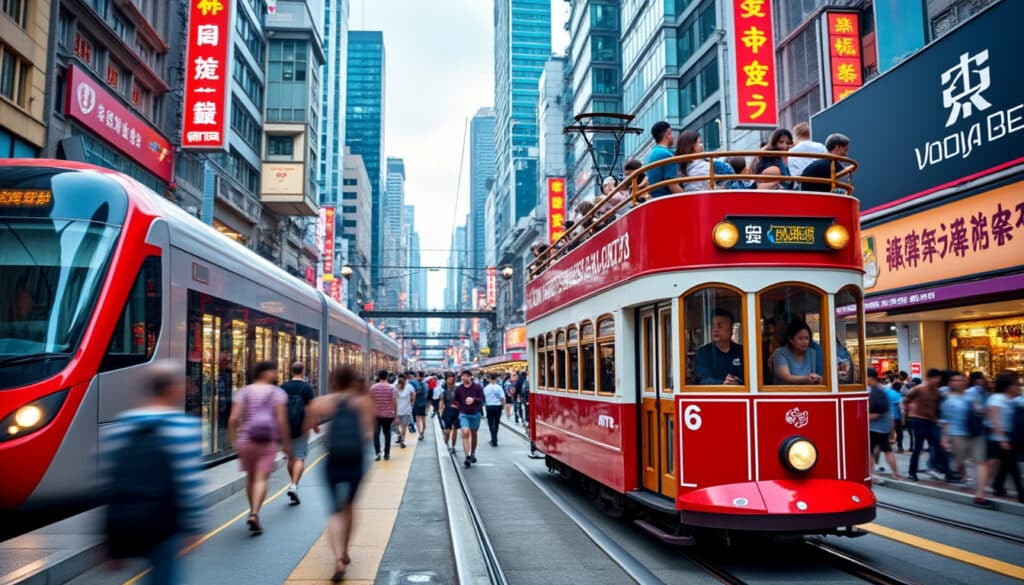Tipping and currency preferences form an integral aspect of any travel experience, especially in a bustling cosmopolitan hub like Hong Kong. Given its rich cultural tapestry and notably distinctive etiquette, understanding how to navigate these financial interactions is vital for both visitors and residents. The Hong Kong Dollar (HKD) serves as the exclusive currency, and while service charges are quite standard, gratuity is seldom expected and typically reserved for exemplary service. This distinction helps delineate Hong Kong’s unique approach compared to Western tipping cultures, and offers travelers the opportunity to appreciate the city’s diverse custom.
Tipping Practices at Restaurants and Bars in Hong Kong
When dining in Hong Kong, one might initially notice the absence of an expected tipping culture prevalent in the West. This can largely be attributed to the fact that most restaurants already include a service charge of 10% on bills. This charge is considered adequate compensation for wait staff and doesn’t rely on tips to supplement their income, unlike in countries like the United States where tipping can significantly augment wages.
For those accustomed to a gratuity where servers depend on tips to meet living expenses, this can come as a surprise. The reassuring aspect, however, is that the service charge ensuring a fair staff wage aligns with the city’s standards. The payment methods in these establishments are convenient with the use of Octopus Card, PayMe, WeChat Pay, and traditional credit options like Visa and UnionPay being prevalent.
Although tipping isn’t obligatory, leaving spare change after settling a cash payment is a courteous gesture that’s appreciated, particularly if the service has been exceptional. This is especially the case in smaller local eateries and food stalls known as ‘cha chaan tengs’ or ‘dai pai dongs’, where patrons might choose to leave small amounts in appreciation for personal service.

There are moments, however, when tipping even in these contexts makes cultural sense. For instance, at seafood restaurants on Temple Street, where you may have a ‘beer server’ responsible for periodically refreshing your drinks, it’s not uncommon for patrons to tip this individual in appreciation for their attention. It reflects a modest acknowledgment of top-notch service, adding a layer of sophistication to an otherwise straightforward dining experience.
Ultimately, in high-end dining settings, while not obligatory, discretionary tipping can also be applied, generally circling around the standard 10% to 20% based on service quality. If a sommelier or a maître d’ has notably transformed the dining encounter into an unforgettable event, a tip can serve as a token of thanks for their extra efforts.
Before getting too comfortable with this unique style, it’s beneficial to familiarize oneself with the full range of experiences that Hong Kong offers when it comes to dining and service. Explore Hong Kong’s culinary scene to appreciate the diverse experience awaiting a visitor in this vibrant city.
Understanding Currency and Payment Methods in Hong Kong
Currency and payment systems are the backbone of every transaction in Hong Kong. As of 2025, the Hong Kong Dollar (HKD) remains the singular legal tender for all transactions, despite the city’s international demeanor and various global currencies at its disposal. This can sometimes surprise new visitors who might expect a wider currency acceptance similar to other open markets.
While credit and debit cards, primarily from HSBC, Standard Chartered, and CitiBank, are commonly utilized, it’s important to note that certain local spots still exclusively engage in cash transactions. Solution-oriented travel involves keeping a reserve of HKD for traditional cash purchases, ensuring smooth and seamless interactions with all types of vendors throughout the city.
Both locals and tourists find great convenience in the Octopus Card, a contactless smart card that not only facilitates transport fare but can also be used for a multitude of transactions, from dining to entertainment. The PayMe app and platforms like Alipay and WeChat Pay take the spotlight when it comes to digital conveniences, allowing users to complete quick and efficient payments for varied expenses.
| Payment Method | Use Case | Widely Accepted | Comments |
|---|---|---|---|
| Cash (HKD) | Local dining, small purchases | ✔️ | Recommended for local vendors |
| Credit Card | Hotels, large restaurants, retail | ✔️ | Visa and UnionPay are popular |
| Octopus Card | Transport, convenience stores | ✔️ | Highly convenient |
| PayMe, WeChat Pay, Alipay | Online, retail, dining | ✔️ | Rapidly growing acceptance |
Given the financial landscape of Hong Kong, familiarizing oneself with these payment modes is essential for both everyday durability and emergency use. Having the right blend of traditional and digital options on hand goes a long way in mitigating the stresses associated with monetary transactions.
To delve deeper into the specifics surrounding currency transactions while planning a visit, refer to this guide on currency and payments in Hong Kong.
Tipping and Service Etiquette in Hong Kong Accommodations
Staying at a hotel in Hong Kong presents an opportunity to unwind while enjoying the city’s extravagant skyline and harbor views. Within this context, understanding the nuances of tipping can enhance the hospitality experience. While a 10% service charge often covers gratuity, there are occasions where acknowledging outstanding service with a tip is welcomed.
The nature of your interaction with hotel staff can often dictate tipping etiquette. Typically, room attendants and bellhops find modest tips to be a token of appreciation for their indispensable roles. HK$10 to HK$20 for luggage assistance, and similar amounts for housekeeping change, are common offerings among guests seeking a personal connection with the staff.
Luxury hotels that indulge guests in meticulous room service and personalized attention tend to evoke generosity in the form of tips. Although not obligatory, if a dedicated staff member has gone to great lengths to ensure a guest’s comfort, recognizing their effort through gratuity fosters appreciation and goodwill.
Emphasizing digital convenience, many travelers also choose to tip using mobile applications, keeping transactions cashless and straightforward. Yet, maintaining tangible Hong Kong Dollars for distribution on the spot ensures spontaneous acknowledgments of excellent service during one’s stay.
- 🛎️ Bellhops: Tips typically range from HK$10 to HK$20 per piece of luggage.
- 🧹 Housekeeping: HK$10 to HK$20 per night is customary, left in a visible place like a pillow.
- 🥂 Room Service: Consider a tip around 10% of the bill if exceptional service is provided.
Ultimately, the personal discretion of guests and the cumulative service expectation dictate the decision to tip, allowing interactions to remain genuine and reflective of personal comfort and satisfaction levels.
Exploring different ways to engage with Hong Kong’s vibrancy during your hotel stay can be captivating—consider checking out this guide on Hong Kong’s hospitality insights to plan your stay effectively.
The Role of Currency in Hong Kong’s Transportation Services
In a city synonymous with efficient public transportation, understanding currency use across systems, including taxis, offers practical ease. While Hong Kong taxis are notably convenient, they often operate mainly on cash, with riders typically rounding up to the nearest dollar as a common courtesy.
This practice emerges from the driver’s reliance on earnings pooled from minimal fare increments. It’s not uncommon to round up a fare of HK$77 to HK$80, serving as an appreciative gesture regardless of the change. However, for situations involving ride-sharing services like Uber, the option to tip digitally is available, particularly advantageous when incentivizing drivers during congested or difficult travel periods.
| Transport Mode | Payment Methods | Tipping | Common Practice |
|---|---|---|---|
| Taxis | Cash, Octopus Card | Round up | ✔️ Rounding up as a gesture |
| Uber | Digital | Via App | ✔️ Optional and situational |
| Buses/Trams | Octopus Card | No | ✔️ Consistent rates, no tipping |
| MTR | Octopus Card | No | ✔️ Efficient and punctual |
The robustness of Hong Kong’s public transportation system means tipping extends beyond financial inducements to an expression of gratitude for transport carried out during adverse conditions, like inclement weather or comprehensive logistical support from drivers.
To make the most of Hong Kong’s efficient transport options, familiarize yourself with available choices through this well-rounded guide on public transport etiquette.
Key Occasions for Tipping Beyond Service and Hospitality
Beyond restaurants, hotels, and taxis, there exist additional contexts in Hong Kong where tipping holds cultural or situational significance. Conversations around tipping in massage parlours, beauty salons, and during personal experiences highlight opportunities for gratitude that resonate beyond business transactions.
Tipping remains a gesture anchored more on personal satisfaction and excellence in service execution. In places such as spas or when engaging highly personalized services, tipping can convey appreciation and contribute to an enhanced relationship with the major service providers.
For service providers like massage therapists, tattoo artists, and hairdressers, the average accepted range circles around 10% to 20%, depending on the complexity and satisfaction derived from the service. The rapport between a customer and their service provider precludes mandatory tipping—the intention remains grounded in a heartfelt acknowledgment of standout services received.
- 💆 Massage Therapists: Generally 10% of the service cost, depending on satisfaction
- ✂️ Barbers/Hairdressers: Tips are typically 10% or more, reflecting the quality of service
- 🖌️ Tattoo Artists: Tips are less common, reserved for exceptional artistry and effort
Showing gratitude through tipping can extend into cultural contexts too, such as during events like the Chinese New Year when sharing ‘lai see’ envelopes as gestures of goodwill becomes significant. Such personal touches mark respect and affection in relationships whether personal or professional.
The manifold relationship that Hong Kong shares with finance, culture, and innate service understanding cultivates distinct tipping dialogue, inviting experiences that transcend simple transactions. Discover more about these cultural practices to deepen appreciation for fascinating traditions.
FAQs on Tipping and Currency in Hong Kong
Is tipping mandatory in Hong Kong restaurants?
No, tipping is not mandatory at Hong Kong restaurants as service charges are commonly included in the bill, fulfilling gratuity expectations.
Can visitors use foreign currency for transactions in Hong Kong?
While international credit cards are frequently accepted, transactions in Hong Kong require the use of Hong Kong Dollars (HKD) as the primary currency.
Which electronic payment methods are widely accepted in Hong Kong?
The city is well-versed in digital payments, with Octopus Card, PayMe, WeChat Pay, and Alipay as highly popular options across the board.
Is it customary to tip taxi drivers in Hong Kong?
Instead of tipping, most people round up the fare to the nearest dollar, which is an appreciated gesture among drivers.
Are gratuities expected in luxury hotels?
Not necessarily, but tipping housekeeping and bell services for extra efforts are considered an agreeable practice in luxury accommodation.

Hong Kong, the city that never sleeps, is a vibrant blend of modernity and tradition, offering visitors a dynamic experience brimming with iconic landmarks, delicious culinary delights, and rich cultural heritage. Whether you’re drawn by the glittering skyscrapers, the peaceful…

Hong Kong, a bustling metropolis known for its stunning skyline and vibrant culture, is also a crucial hub in the field of air travel. The city’s aviation network is pivotal in connecting Asia to the world, serving millions of passengers…

Budget travel tips for Hong Kong
Traveling to Hong Kong offers an exciting adventure without draining your wallet. Known for its mesmerizing skyline, vibrant street markets, and rich cultural heritage, Hong Kong is a dream destination for many. However, navigating this bustling metropolis can seem daunting,…

Cheapest time to visit Hong Kong
Planning a visit to Hong Kong isn’t just about choosing landmarks and attractions; it’s also about deciding on the right time. This vibrant city, which blends ancient traditions with modern skylines, can offer different experiences depending on when you decide…
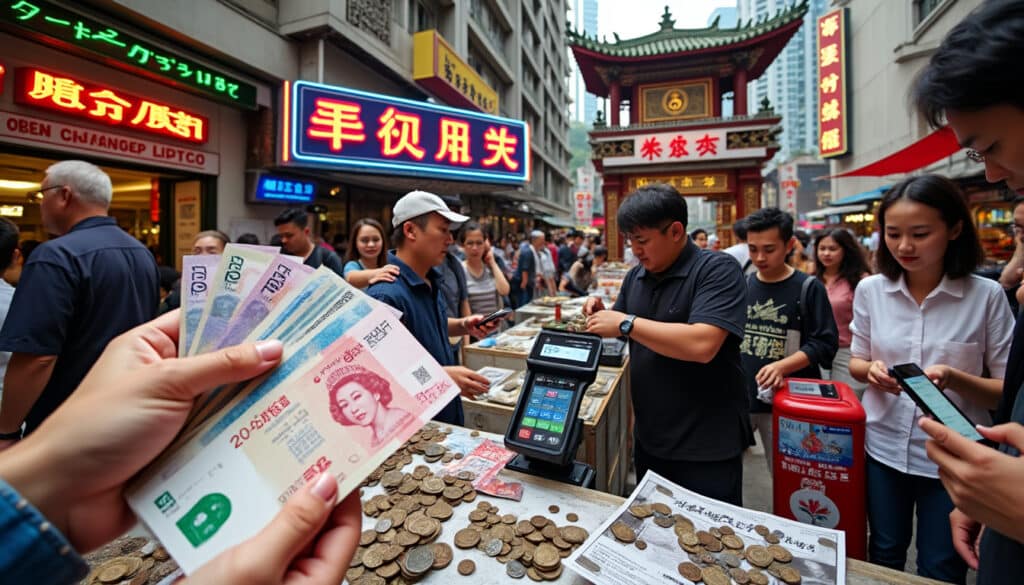
Currency and payments in Hong Kong
Hong Kong is a bustling metropolis known not just for its stunning skyline, but also for its vibrant mix of eastern and western influences. As an international financial hub, it offers a dynamic and diverse range of payment options that…

Flights to Hong Kong and airline options
Hong Kong, a bustling metropolis known for its vibrant culture, towering skyscrapers, and bustling markets, is a destination that attracts millions of visitors every year. Whether you’re traveling for business, pleasure, or simply to experience the city’s unique charm, finding…
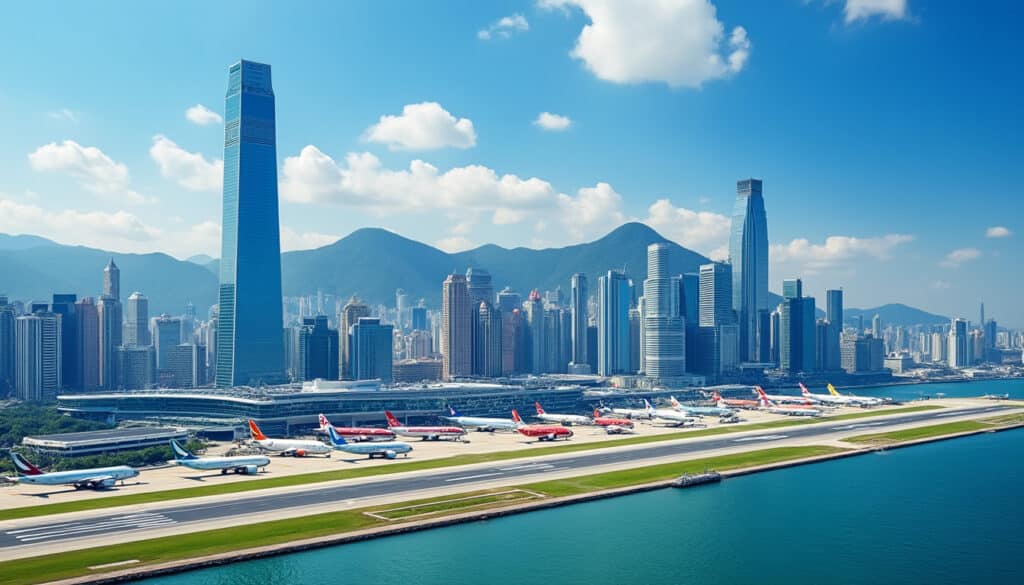
Flights to Hong Kong and airline options
As one of Asia’s most dynamic and captivating cities, Hong Kong is a prime destination for travelers worldwide. The city attracts visitors with its unique blend of Eastern and Western cultural influences, iconic skyline, and bustling streets. With numerous airlines…
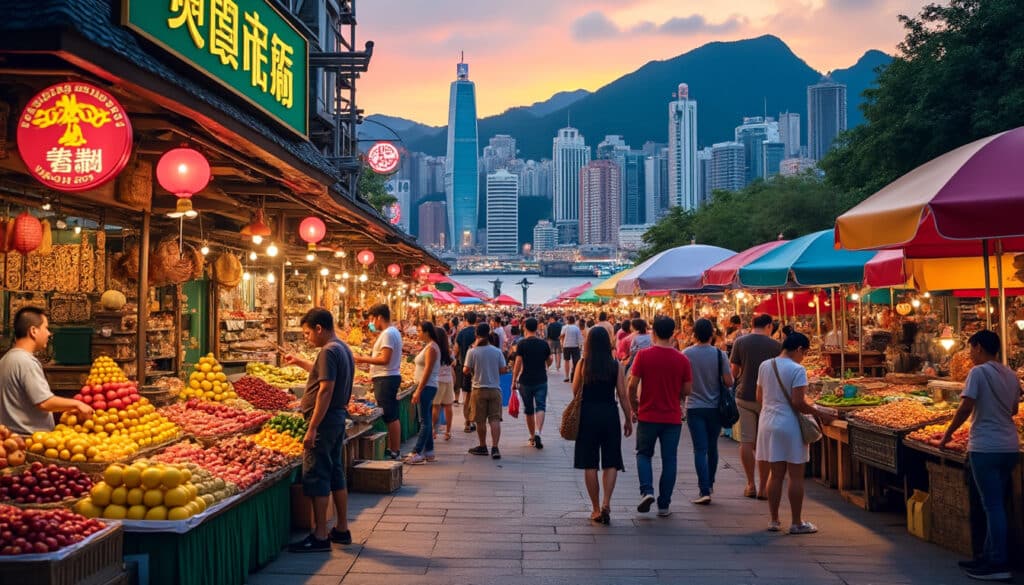
How many days to stay in Hong Kong?
Hong Kong, a bustling metropolis that beautifully merges the old with the new, offers a medley of urban delights, cultural heritage, and scenic landscapes. Deciding how many days to allocate for a visit to this dynamic city depends largely on…

Hong Kong, a pulsating city full of vibrant life, towering skyscrapers, and bustling streets, can be quite daunting if you’re armed with hefty luggage. Navigating through its gamut of attractions—from the bustling street markets to the serene Victoria Peak—is much…
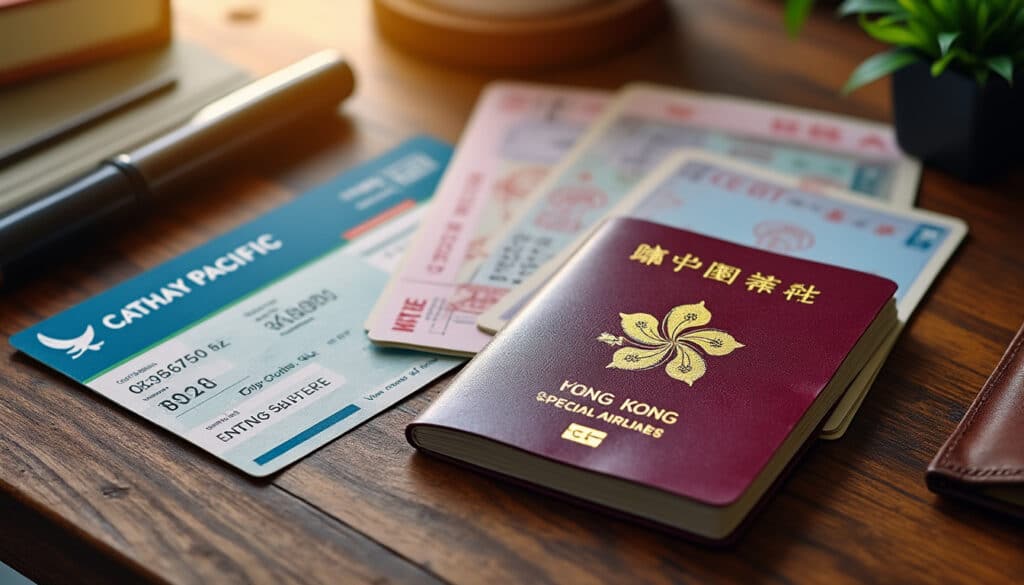
Passport and travel documents for Hong Kong
In a city known for its vibrant blend of Eastern and Western cultures, obtaining the right travel documents is an essential part of enjoying the freedom that Hong Kong offers. Whether you’re a resident or a visitor, understanding the intricacies…

Planning your trip to Hong Kong
If Hong Kong has been on your bucket list, planning your trip can easily become an engaging journey in itself. Known for its towering skyscrapers juxtaposed against lush green mountains and vibrant cultures blending the East and West, Hong Kong…
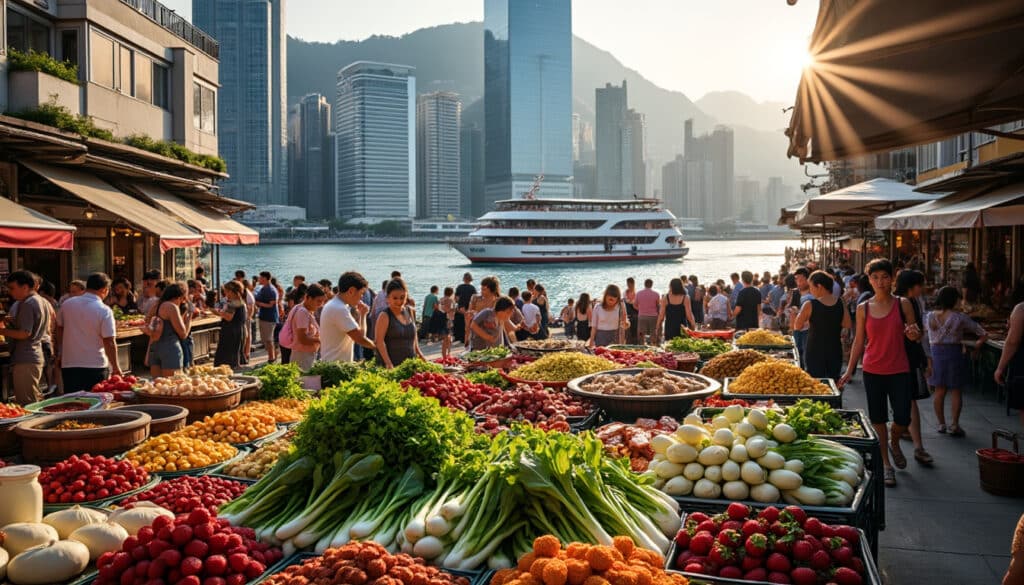
Hong Kong is a vibrant hub known for its towering skyscrapers and bustling streets, but this metropolis is also infamous for its high living expenses. Prices in Hong Kong can surprise newcomers and seasoned travelers alike, offering a unique blend…
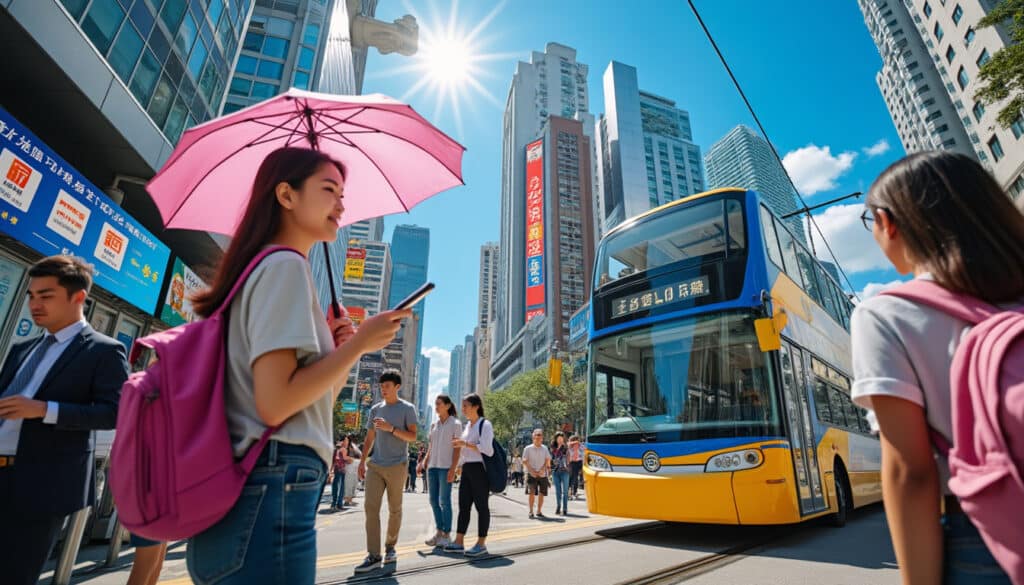
Public transport and payments in Hong Kong
Hong Kong, a city known for its vibrant culture and skyline, boasts one of the world’s most efficient public transportation systems. The seamless integration of various modes of transport, from subways to ferries, ensures that both residents and visitors can…
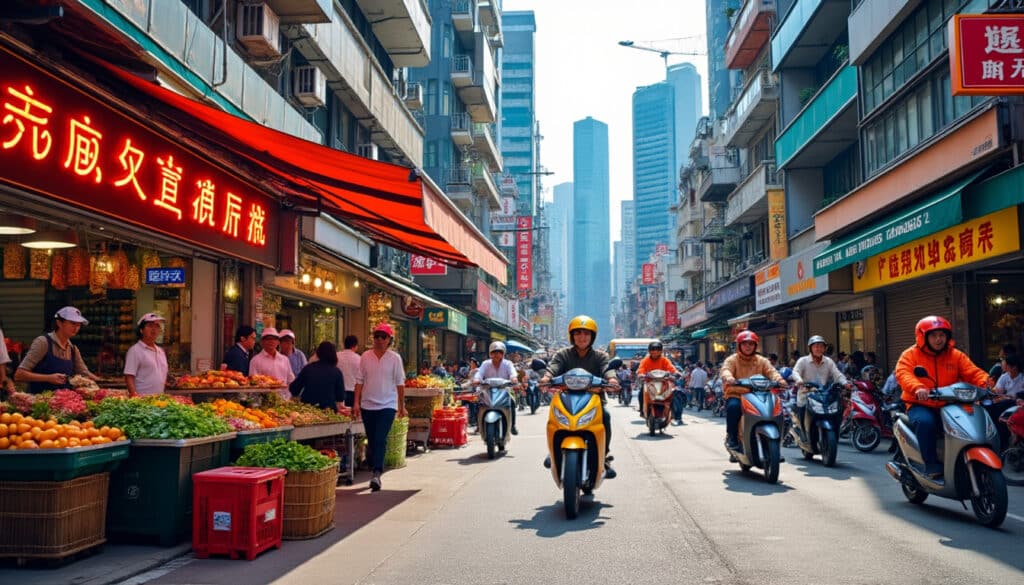
Shopping and delivery in Hong Kong
Hong Kong stands as a bustling metropolis known not only for its iconic skyline and vibrant cultural tapestry but also for its dynamic shopping and delivery services. As a global hub, it offers a splendid mix of traditional markets, luxury…
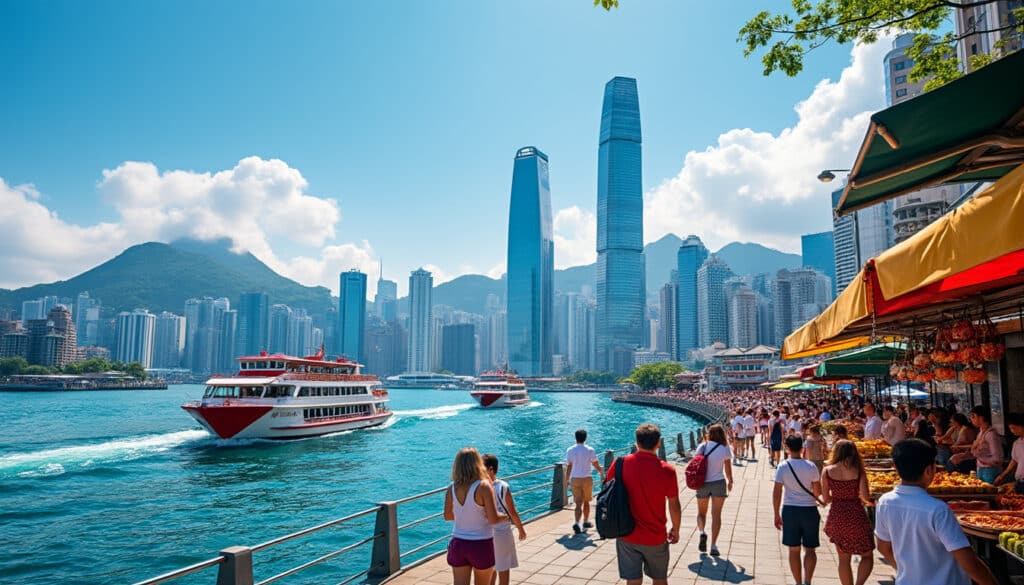
Sightseeing options in Hong Kong
Hong Kong, a dynamic city known for its stunning skyline and vibrant culture, offers an array of sightseeing opportunities that appeal to a wide variety of interests. From awe-inspiring natural landscapes to bustling urban wonders, Hong Kong is a treasure…

Taxi and cab services in Hong Kong
Taxi and cab services in Hong Kong are a quintessential aspect of daily life, facilitating convenient transportation across the city’s dynamic landscape. With over 18,000 taxis in service, they are vital for both residents and tourists. Whether navigating the vibrant…

Tipping and local payment habits in Hong Kong
In the vibrant and bustling metropolis of Hong Kong, a city known for its unique fusion of Eastern and Western cultures, the etiquette of tipping and payment can be a bit perplexing for both visitors and residents alike. Understanding these…
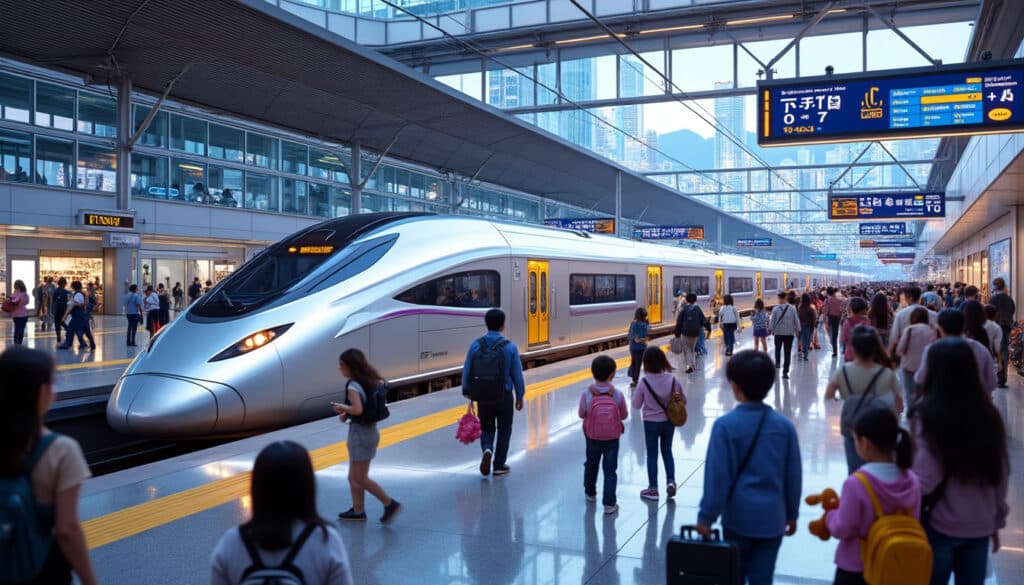
Train travel and stations in Hong Kong
Hong Kong stands as a beacon of innovation and efficiency in public transportation, offering travelers a myriad of options to explore the bustling metropolis. With its seamless blend of modern train technology and historical charm, the city presents a comprehensive…
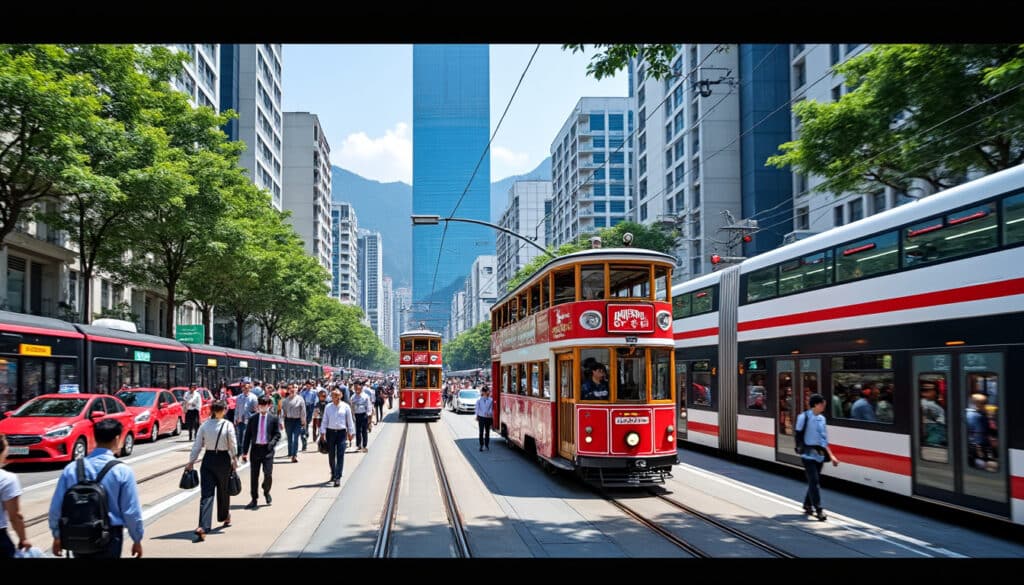
Transportation and mobility in Hong Kong
Hong Kong, a bustling metropolis renowned for its skyscrapers and vibrant culture, boasts an intricate tapestry of transportation options that cater to its 7.5 million residents and millions of visitors annually. This article delves into the intricacies of the city’s…

Travel checklist for Hong Kong
Whether you’re planning a family adventure or a solo exploration, preparing for a trip to Hong Kong involves more than just booking flights and accommodations. Known for its vibrant mix of tradition and modernity, Hong Kong offers an unforgettable experience…

Trip costs and budgeting in Hong Kong
Hong Kong, a dazzling city of skyscrapers, culture, and culinary delights, can seem like a pricey destination at first glance. However, with careful planning and smart budgeting, it’s entirely possible to explore this vibrant city without breaking the bank. From…

As one of the busiest transit hubs in Asia, Hong Kong International Airport (HKG) stands as a beacon of efficiency, convenience, and modernity. This sprawling complex offers more than just a gateway to Hong Kong; it is a destination in…
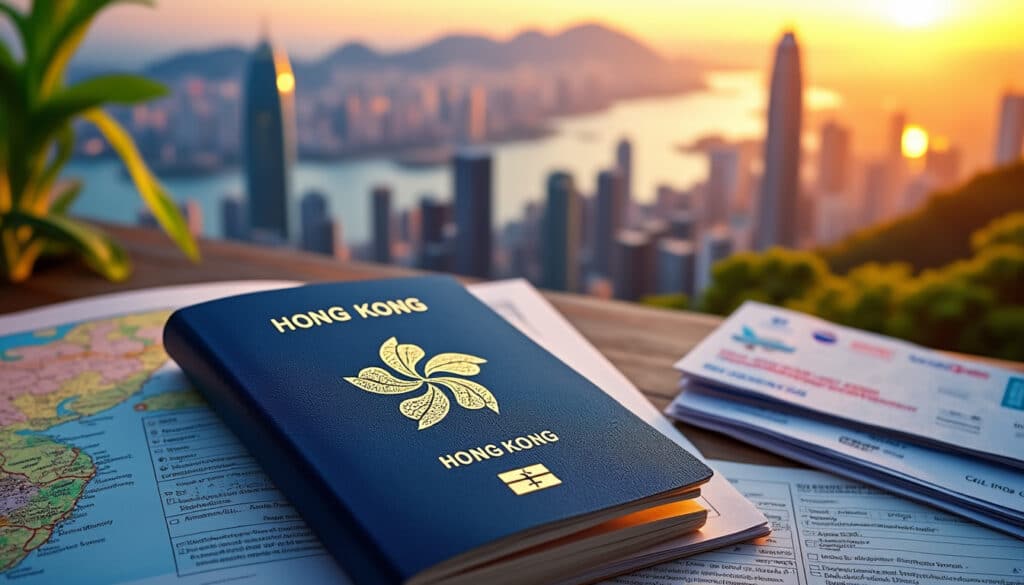
Visa requirements for Hong Kong
Hong Kong remains a vibrant hub that attracts travelers for business, tourism, education, and more. As a gateway to Asia, Hong Kong’s unique status as a Special Administrative Region (SAR) within China means it follows distinct visa requirements that differ…

When is the best time to visit Hong Kong?
Planning a visit to Hong Kong requires careful timing to ensure the best experience in this vibrant city where ancient traditions coexist with modern innovation. From scenic hikes to festive celebrations, Hong Kong offers a variety of experiences all year…


